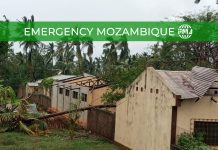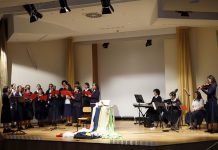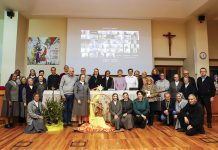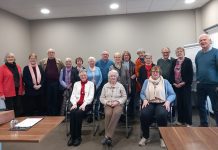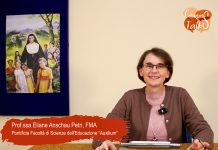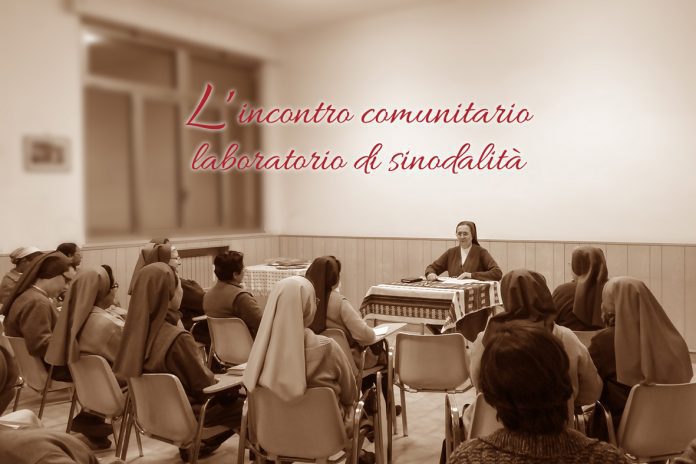Rome (Italy). The Mother General of the Institute of the Daughters of Mary Help of Christians, Sr. Chiara Cazzuola, in Circular No. 1023 recalls the invitation of General Chapter XXIV to consider formation rooted in daily experience (see Acts of GC XXIV, n. 35 I) and she pauses to reflect in particular on the weekly encounter, indicated in article 124 of the Regulations of the Constitutions of the FMA.
Mother specifies that “in today’s language, it is easier to speak of a community encounter than of a conference, a term used by Don Bosco ever since the Constitutions were handwritten” and a practice to which Mother Mazzarello immediately proved faithful.
Thus, she clarifies the term conference. Rather than concerning the content in the meaning of encounter, she states it has the significance of “dialogue, evaluation, interchange between members who have a specific identity and are called to offer their original contribution in view of shared paths and common operational guidelines.” It is therefore an experience to be revitalized and made incisive as a formative opportunity that can gradually transform personal and community life, to give new apostolic and missionary impetus:
“It will be the attitude of each one and the wisdom of the one who animates the community that will make the weekly appointment an exercise in synodality, as happened in Mornese”.
Listening to written sources and Salesian tradition
Mother Chiara draws on the sources to recall how much the weekly conference was already considered an “important occasion for ordinary formation” and how much in the life and growth of people, relationships and everyday life were considered two fundamental values.
From the Cronistoria, she draws the account of the first conference, which “touches life, moves the mind and heart” of those present who hear Mother Mazzarello speak “like one inspired, like a saint” (Cron. II, 11), with words that involve participation, arouse thoughtfulness and inner renewal.
The familiar, simple, and direct style of Mother Mazzarello also emerges. She did not know the term synodality, but lived its meaning in her relationship with the sisters. She involved them in a journey together and fostered mutual trust, putting people in a position to be able to give and receive, so that each one could “express the fruitfulness of the charism and feel personally involved in the mission entrusted to all” (cf. Rooted in the Covenant Formation Plan of the Daughters of Mary Help of Christians, 131), an aspect also referred to in art. 35 of the Constitutions.
Timeliness and effectiveness of an experience in synodal style
“For the conference to be a fruitful formative opportunity, the most appropriate conditions must be created”, says Mother, underlining the importance of fostering a community climate of participation and co-responsibility, with good cohesion among the members of the community. From this point of view, the conference or community encounter, becomes a synodal moment “to identify new paths of maturation and apostolate,” a space for discernment, sharing, and a laboratory for listening and understanding together the Lord’s call as an outgoing community.
On a personal level, “if the conference is lived as an experience that touches life, it becomes the place to strengthen the charismatic identity as Daughters of Mary Help of Christians.” It fosters the sense of belonging to the Church, the Institute, the community, and the educational mission, arouses questions and reflections, motivates steps towards conversion.
Mother Chiara dwells on the topics to be discussed and on the possible reflections to be put in place, giving some concrete suggestions to make the most of this important formative moment for the life of the communities, which “must not be easily replaced, cannot be delegated or left out”.
The conference, she reiterated, “is a precise commitment of the Animator” and “a personal and community responsibility”. And she encourages, “I know I can count on your commitment, fidelity, and creativity”.
At the end of the Circular, Mother entrusts Mary with the preparation for the solemnity of Holy Christmas and wishes that this experience “among the uncertainties and hopes of our history, will make us experience the same joy that filled Mary’s life in welcoming Jesus and in giving Him to the world as Savior”.
In conclusion, she wishes a holy Christmas of peace and hope to all the FMA, their families, the Educating Communities, children, young people “who frequent our houses, especially those most in difficulty,” to the Rector Major Fr. Ángel Fernández Artime, to the Salesian confreres and to the members of the Salesian Family. In particular, “to the sisters and the educating communities who live in difficult situations, in lands where there is war, violence, poverty. Upon all of humanity we invoke the gift of true and lasting peace”.


